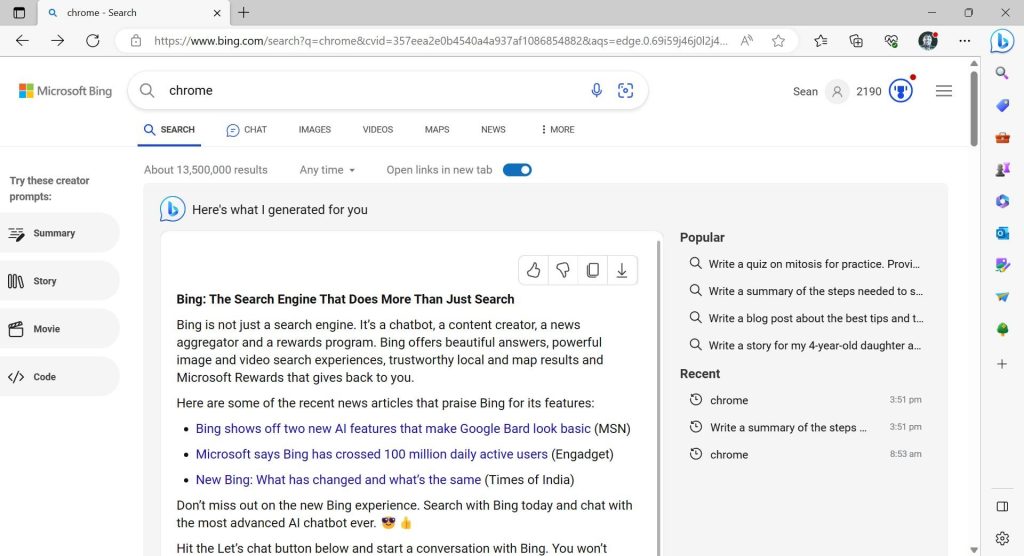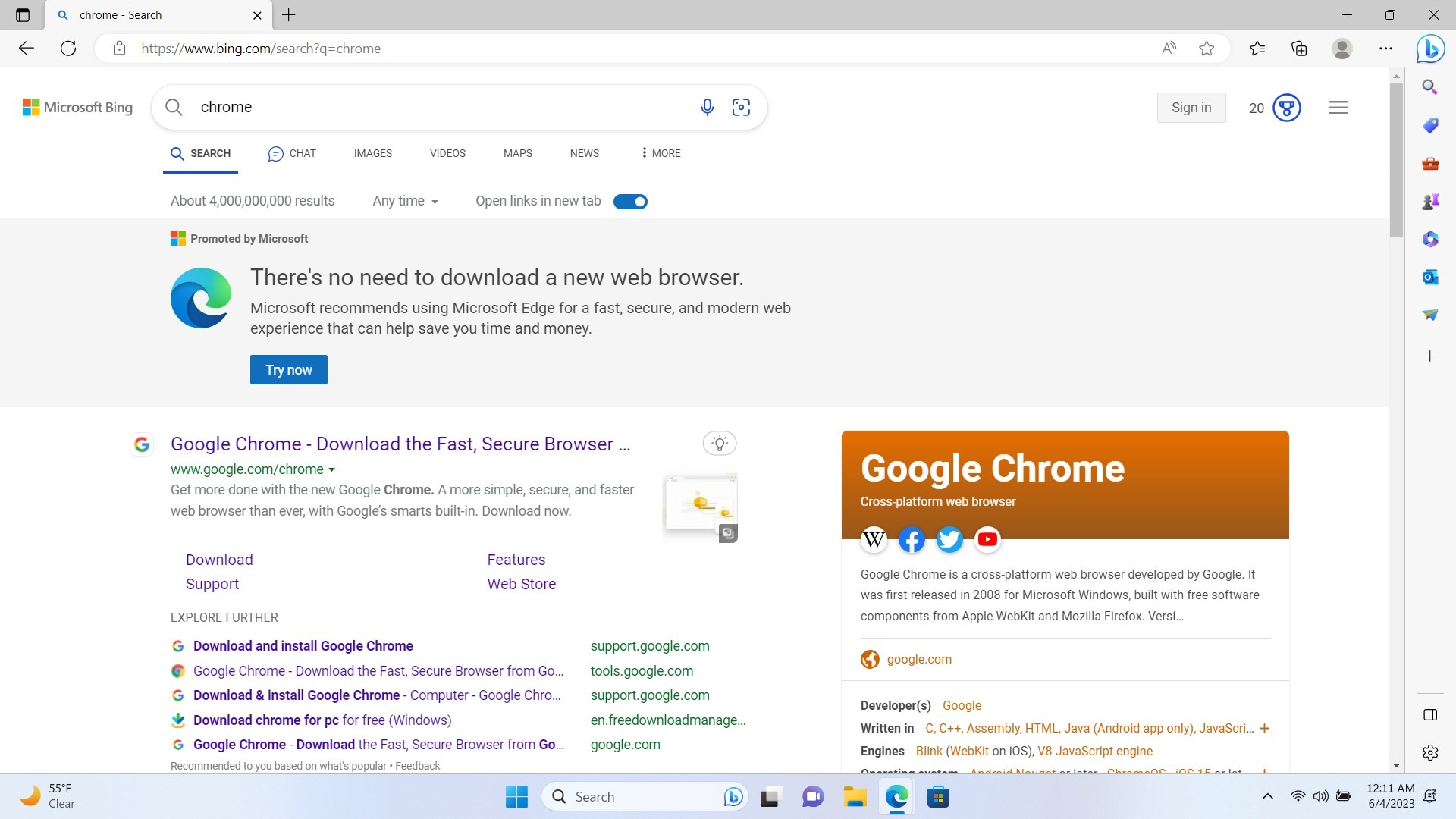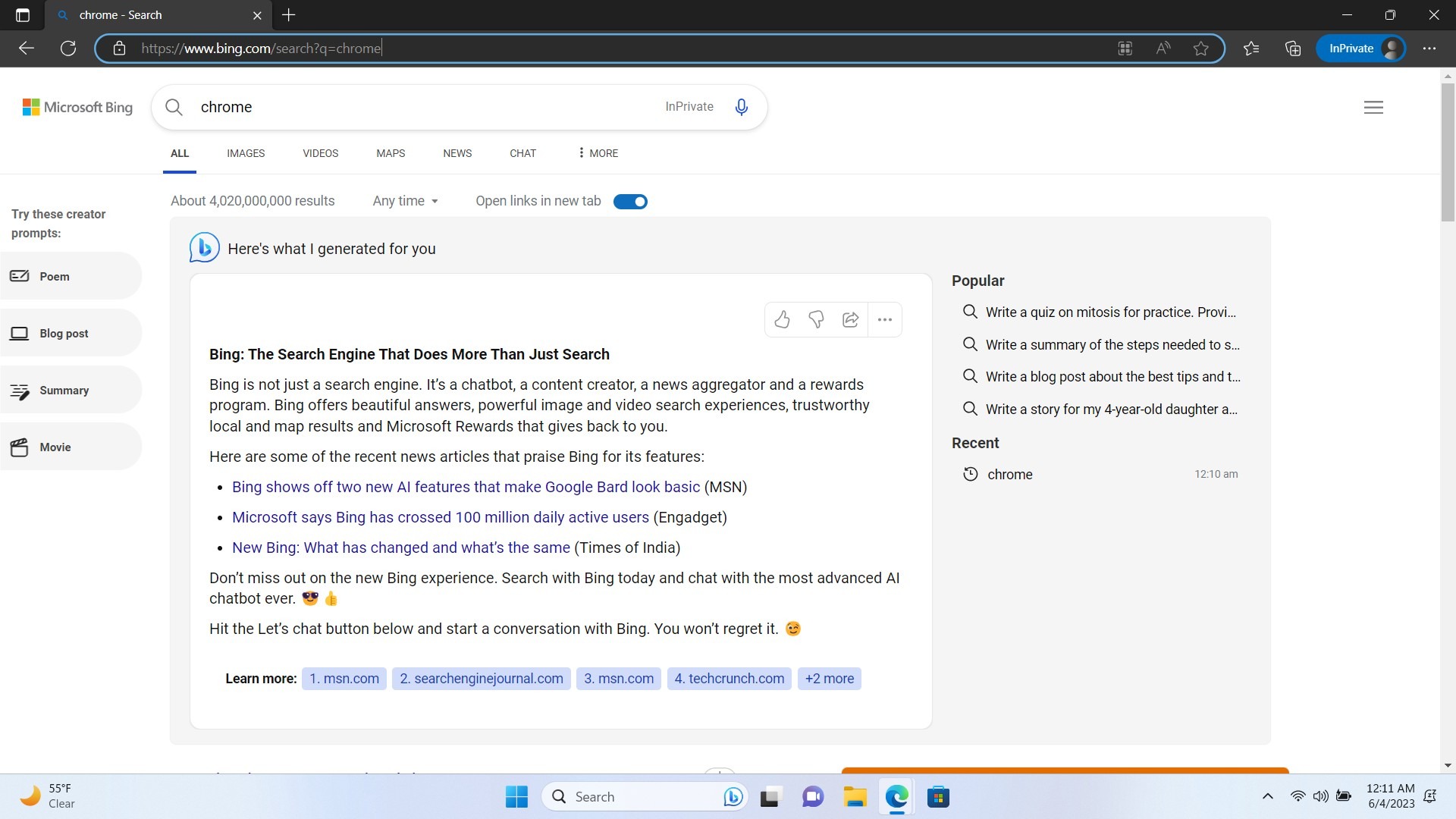
Microsoft has some good products, but the company has, time and time again, been too aggressive in pushing those products on customers. In the latest example, Microsoft was caught red-handed tweaking its AI experience to effectively ignore searches for Google Chrome and instead just list out Bing features.
The feud between Microsoft and Google has been ongoing for years at this point, with countless examples of both brands being aggressive in retaining or even stealing customers from one another. Google puts some pretty blatant ads for Chrome when you use its sites from Microsoft Edge, though Microsoft tends to be a bit more pushy. During Edge’s first years, Microsoft forced Windows users into the browser and added countless messages telling users to stick with Edge whenever they tried to download Chrome.
This latest example, though, is a bit more shameless.
As spotted by The Verge, Microsoft’s new AI experience in Bing was briefly ignoring searches for Google Chrome and burying any relevant results. Bing’s AI “widget” would appear on searches for “Chrome” or “Google Chrome” and, instead of offering information that the user searched for, just provide a list of features in Bing as, currently, Bing AI does not work in Chrome.

Effectively, this served as a full-screen advertisement for Bing and Edge in a place where actual search results were supposed to be. Links and information actually relevant to the user’s search were buried completely out of view, making this far more aggressive than past attempts, as The Verge showed in the comparison below.
Importantly, this also wasn’t just something Microsoft got its AI to do. This is faked, because the AI never spits out the same exact answer twice. This “experience” was found to throw out the same exact text every single time.
And, notably, this behavior was being seen not just by one user, but at test locations across multiple countries.


Soon after Microsoft was asked about this behavior, the company pulled the plug on it, which clearly showed the company’s hand that this was on purpose. Microsoft explained in a statement that “experiments” like this are “often brief.”
We often experiment with new features, UX, and behaviors to test, learn, and improve experiences for our customers. These tests are often brief and do not necessarily represent what is ultimately or broadly provided to customers.
Bing AI is pretty good, and Microsoft should be proud. But this was not acceptable.
More on AI:
- Microsoft’s Bing AI adds contextual chat, widget on Android and iOS
- Hands-on: AI-powered ‘SGE’ is scarily sufficient and maybe isn’t Google Search anymore
- How to turn on Google’s new AI Search Generative Experience
FTC: We use income earning auto affiliate links. More.




Comments